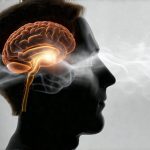Indigestion, something many experience occasionally after a large meal, can become a chronic issue for some individuals, extending far beyond temporary discomfort. While often dismissed as merely unpleasant, long-term or persistent indigestion—characterized by symptoms like bloating, heartburn, nausea, and abdominal pain—can significantly disrupt the body’s ability to effectively absorb essential nutrients from food. This isn’t simply about feeling unwell; it’s about potentially creating deficiencies that impact everything from energy levels and immune function to cognitive health and long-term well-being. Understanding the intricate relationship between prolonged digestive issues and nutrient absorption is vital for anyone experiencing these problems, allowing them to proactively manage their health and seek appropriate support.
The digestive system is a remarkably complex process, relying on a coordinated sequence of events to break down food into usable components. When this process is consistently disrupted by indigestion, it’s not just the immediate discomfort that suffers; the fundamental building blocks needed for cellular repair, growth, and overall bodily function are compromised. Chronic indigestion often indicates underlying issues within the digestive tract – potentially ranging from motility disorders to enzyme deficiencies or even gut microbiome imbalances – each of which can impair specific stages of nutrient breakdown and absorption. Ignoring these long-term effects can lead to a cascade of health problems down the line, making early recognition and management essential. The effects of long-term constipation are often intertwined with indigestion.
The Digestive Process & Nutrient Absorption: A Delicate Balance
The human digestive system is far more than just a passive receptacle for food. It’s an incredibly dynamic environment where mechanical breakdown (chewing, churning) combines with chemical digestion (enzymes, acids) to liberate nutrients from food matrices. This process begins in the mouth and continues through the esophagus, stomach, small intestine, large intestine, and finally culminates in elimination. Each stage relies on optimal function for successful nutrient absorption. The small intestine is where the majority of nutrient absorption takes place, boasting a massive surface area thanks to its villi and microvilli—finger-like projections that maximize contact with digested food. However, even slight disruptions upstream – like incomplete chewing or insufficient stomach acid production – can significantly impact this crucial stage.
When indigestion becomes chronic, it often means one or more of these stages are compromised. For example:
– Reduced stomach acid (hypochlorhydria) hinders protein digestion and mineral absorption.
– Impaired pancreatic enzyme secretion limits the breakdown of fats, carbohydrates, and proteins.
– Altered gut motility (too fast or too slow transit time) reduces contact between nutrients and the intestinal lining, minimizing absorption opportunities.
– Inflammation within the digestive tract damages villi, further reducing absorptive capacity.
The consequences are far reaching. While some individuals may experience obvious deficiency symptoms like fatigue or weakened immunity, others might develop subtle deficiencies that accumulate over time, leading to more insidious health problems. It’s important to remember that nutrient absorption isn’t a ‘one size fits all’ process; individual factors such as age, genetics, dietary habits, and overall health status play significant roles in determining how efficiently nutrients are utilized. Paying attention to gut hormones can also help understand digestive processes.
Specific Nutrient Absorption Issues & Indigestion
Certain nutrients are particularly vulnerable to malabsorption when indigestion is present. Fat-soluble vitamins (A, D, E, K) require adequate fat digestion and absorption, which can be severely impacted by conditions like pancreatic insufficiency often associated with chronic indigestion. Similarly, iron absorption relies on stomach acid for optimal conversion into a usable form; those with low stomach acid are at higher risk of iron deficiency anemia. Calcium absorption is also dependent on vitamin D levels and intestinal health—both areas potentially compromised by long-term digestive issues.
Beyond vitamins and minerals, macronutrient malabsorption can occur as well. Individuals with undiagnosed lactose intolerance or celiac disease may experience severe indigestion when consuming triggering foods, leading to impaired carbohydrate absorption. Chronic inflammation associated with indigestion can also disrupt protein digestion and utilization, contributing to muscle loss and impaired tissue repair. The body attempts to compensate for these deficiencies, but prolonged malabsorption eventually overwhelms its adaptive capacity, manifesting as noticeable health problems. This is why a holistic approach that addresses the underlying cause of indigestion – rather than simply masking symptoms – is crucial for restoring optimal nutrient absorption. Understanding high-fat diets and their impact can also be helpful.
Identifying Potential Nutrient Deficiencies
Recognizing the signs of nutrient deficiency can be challenging, as many symptoms are non-specific and overlap with other conditions. However, certain red flags should prompt further investigation. Frequent fatigue or weakness, despite adequate sleep, could indicate iron, vitamin D, or B vitamin deficiencies. Brittle nails, hair loss, or skin problems might suggest insufficient biotin, zinc, or essential fatty acid intake. Digestive symptoms themselves—like persistent bloating or diarrhea—can be indicative of malabsorption syndromes.
Here’s a simple approach to consider:
1. Keep a detailed food diary: Track what you eat and any associated digestive symptoms to identify potential trigger foods.
2. Monitor for subtle changes: Pay attention to changes in energy levels, mood, sleep quality, and overall well-being.
3. Consult with a healthcare professional: Discuss your concerns and explore appropriate testing options, such as blood tests or stool analysis, to assess nutrient status.
It’s crucial not to self-diagnose or attempt to treat deficiencies without professional guidance. Supplementing without knowing the underlying cause of malabsorption can sometimes exacerbate problems or create imbalances. A qualified healthcare provider can help determine the root cause of your indigestion and recommend a personalized plan to address both digestive issues and nutrient deficiencies. Consider how emotional regulation impacts digestion as well.
The Role of Gut Microbiome in Nutrient Absorption
The gut microbiome – the trillions of bacteria, fungi, viruses, and other microorganisms residing in our digestive tract – plays an unexpectedly significant role in nutrient absorption. These microbes aid in the digestion of complex carbohydrates, synthesize certain vitamins (like K and B vitamins), and enhance mineral absorption. A healthy gut microbiome is essential for maintaining a strong intestinal barrier, preventing “leaky gut” syndrome, which allows undigested food particles and toxins to enter the bloodstream, triggering inflammation and further disrupting nutrient absorption.
Chronic indigestion often leads to dysbiosis – an imbalance in the gut microbiome—due to factors like poor diet, stress, antibiotic use, or inflammatory bowel conditions. This imbalance can impair the microbes’ ability to perform their essential functions, contributing to malabsorption. Probiotics (live beneficial bacteria) and prebiotics (fibers that feed beneficial bacteria) are often recommended to restore gut microbiome balance, but it’s important to choose strains specifically tailored to your individual needs and consult with a healthcare professional before starting supplementation. Morning hydration can also support a healthy microbiome.
Managing Indigestion & Optimizing Nutrient Absorption
Effectively managing long-term indigestion requires a multifaceted approach focused on identifying and addressing the underlying cause. This may involve dietary modifications (such as eliminating trigger foods, increasing fiber intake, or adopting an elimination diet), lifestyle changes (stress management techniques, regular exercise), and potentially medical interventions (medications to reduce stomach acid or improve motility).
Here are some strategies to consider:
– Eat smaller, more frequent meals: This reduces the burden on the digestive system.
– Chew food thoroughly: This aids in mechanical digestion and nutrient liberation.
– Stay hydrated: Water helps facilitate digestion and absorption.
– Manage stress levels: Chronic stress can negatively impact gut function.
– Consider enzyme supplementation: Under the guidance of a healthcare professional, supplementing with digestive enzymes may aid breakdown of specific nutrients.
Ultimately, optimizing nutrient absorption is about restoring balance within the digestive system. By addressing the root cause of indigestion and adopting a holistic approach to health, individuals can significantly improve their ability to absorb essential nutrients and support long-term well-being. Remember that consistent communication with a healthcare professional is key to developing a personalized plan tailored to your specific needs and circumstances. Pay attention to how fast eating can impact digestion as well.


















